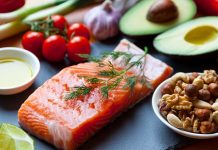Nutrionists, at various times have agreed with the American psychologist, Williams H. Sheldon, on his body type theory, called Somatotypes. The assumption of Somatotype is that there are three body types, and each individual could be any of the three. They are: Ectomorph, Mesomorph, and Endomorph.
The essence of nutritionists’ alignment with the theory of body type nutrition is that the human body type determines how it processes what the person eats. Though its difficulty or out rightly impossible to change the basic body frame and build, which is mostly determined by genetics, experts advised eating in line with body type, in order to:
Modify and respond to what they eat
Lose, gain, or maintain your weight as you wish to achieve your ideal body weight
Target trouble spots to modify fat and muscle to achieve the body shape you want
Eliminate food cravings
Boost your metabolism and energy
Achieve and maintain optimum health by reducing the challenges and health risks of a body type.
Body Types Categories and Description
Body types otherwise called somatotypes, as earlier mentioned, could be diet based, following Fitness and nutrition advocates guide. Now, its time you know your body type, in case you are yet to, and keep to your diet recommendation, in order to achieve your desired body look.
ECTOMORPHS
Ectomorphs (a.k.a lepacious) have a small bone structure, are naturally long and skinny, and have little muscle mass or body fat. This body type has the following challenges:
Difficulty gaining weight, lean muscle mass, and fat no matter how much they eat
A high metabolism, so they burn off fat easily
A high carbohydrate tolerance, so they absorb and utilize carbs efficiently and there is less to convert to fat
To overcome these challenges and maintain a healthy weight and optimum muscle and fat mass the eating plan recommended for an ectomorph is to eat:
A high-carb, moderate protein and low-fat diet. Suggested nutrient distribution: carbs 50%, protein 30%, and fat 20% of total daily calories
Five to six meals a day of healthy calorie and nutrient-dense carb foods
Enough calories to maintain a normal amount of fat and muscle
An ectomorph can achieve this recommendation by eating a healthy combination of:
Complex carbs of whole grains, fruits, and starchy and non-starchy vegetables
Lean animal protein and legumes
Healthy sources of fats such as flaxseed and olive oils, as well as nuts, seeds, and dairy
To maintain enough fat, go light on aerobic exercise and, to increase your lean muscle mass, include weight training in your exercise plan.
MESOMORPHS
Mesomorphs have a medium build and bone structure. They tend to be muscular, lean, and athletic-looking and have little fat. They have the most desired body type and a healthy, moderate metabolism, but their challenges include:
Can gain or lose weight, fat, and muscle without much effort depending on what they eat
A tendency to carry weight in the bottom, hips, and thighs if they gain weight
To maintain a lean, muscular body and limit a tendency towards overeating and fat and weight gain, a mesomorph is advised to:
Eat a diet balanced between healthy carbs, lean protein, and healthy fats. Suggested nutrient distribution: carbs 40%, protein 30%, and fat 30% of daily calories
Manage calorie intake to reduce fat gain
To achieve this a mesomorph’s diet can include:
Complex carbohydrates such as whole grains, starchy and non starchy vegetables, and fruits
Lean animal protein such as lean meats, fish, skinless poultry, and legumes
Healthy fats from flaxseed and olive oils, nuts, and reduced-fat dairy
Add aerobics, such as running, to burn off any excess fat. Maintain lean muscle with weight training.
ENDOMORPHS
Endomorphs (a.k.a orobo) have a big bone structure and a heavier body mass with lots of poorly defined muscle and body fat. They tend to be round and soft and have the following challenges:
Gain weight easily and have difficulty losing it
A slow metabolism, so they have more difficulty burning fat, and excess calories are more likely to be stored as fat
A tendency to store fat around the belly and upper body, which carries an increased risk for diabetes and heart disease
Poor carbohydrate tolerance, so they don’t absorb and utilize carbs well, increasing the risk for diabetes
To lose fat and weight and tone muscle endomorphs should:
Eat a low-carb, high fiber, high protein, and low-fat diet. The suggested nutrient distribution is carbs 30%, protein 40%, and fat 30% of daily calories.
Pay attention to calorie intake because of the challenge of burning off excess calories and fat.
Endomorphs can achieve this recommendation by:
Choosing complex carbs of whole grains and non-starchy vegetables
Avoiding or limiting simple sugars and refined starches such as white bread, pasta, white rice, potato, and starchy vegetables, such as corn and peas
Eating lots of lean protein, such as lean meats, fish, skinless chicken, legumes, and a small amount of nuts and seeds
Limiting fats to healthy sources, such as flaxseed and olive oils, reduced-fat dairy, and peanut butter, as well as by making low-fat substitutions in favorite recipes
Add high intensity aerobic exercises to mobilize the fat and add weight training to tone muscles as the pounds come off.











